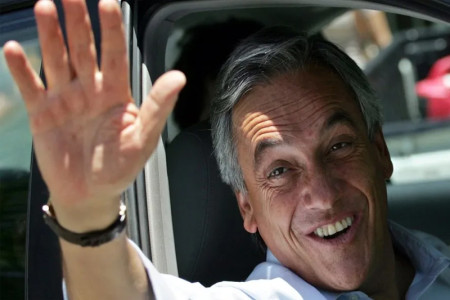Three other people aboard the aircraft survived when it came down in a lake near the southern town of Lago Ranco.
Piñera had flown his own helicopter but there was no official confirmation he had been the pilot during the crash.
National mourning has been declared and tributes have been paid from across Latin America's political divide.
The conservative politician was credited with rapid economic growth during his first term from 2010 to 2014.
Abroad, he was perhaps best known for overseeing the spectacular rescue of 33 miners trapped for 69 days beneath the Atacama Desert in 2010, a story which gripped the world.
However, his second term, from 2018 until last year, was marred by violent social unrest.
His body was retrieved by the Chilean navy after the crash in a region where, according to Spanish newspaper El País, he spent holidays with his family every February.
Announcing three days of mourning and a state funeral, his leftist successor as Chile's president, Gabriel Boric, paid a warm tribute to Piñera.
"We are all Chile and we should dream it, draw it and build it together," he said. "Sebastián Piñera said this when he assumed his second presidential term on 11 March 2018. We send a big hug to his family and loved ones in these hard times."
Brazil's leftist President, Luiz Inácio Lula da Silva, said he was "surprised and saddened" by Piñera's death.
"We got along, we worked to strengthen the relationship between our countries and we always had a good dialogue, when we were both presidents, and also when we weren't," he wrote on X.
Argentina's former conservative President Mauricio Macri said Piñera's death was an "irreplaceable loss" and he felt "immense sadness" while Iván Duque, the former conservative president of Colombia, said he felt great sadness over the death of his friend.
In 2010, Piñera became Chile's first conservative president since the end of military rule in 1990.
The Harvard-trained economist displaced the country's first female President, Michelle Bachelet, promising to turn his business acumen to the country's economic growth.
Born in 1949, he became one of Chile's richest men, making much of his money in the 1980s when he introduced credit cards to Chile through his company Bancard.
He also invested in Chile's biggest main airline, Lan Chile, the country's top football club, Colo Colo, and a television channel.
By Ione Wells in São Paulo and Patrick Jackson in London


